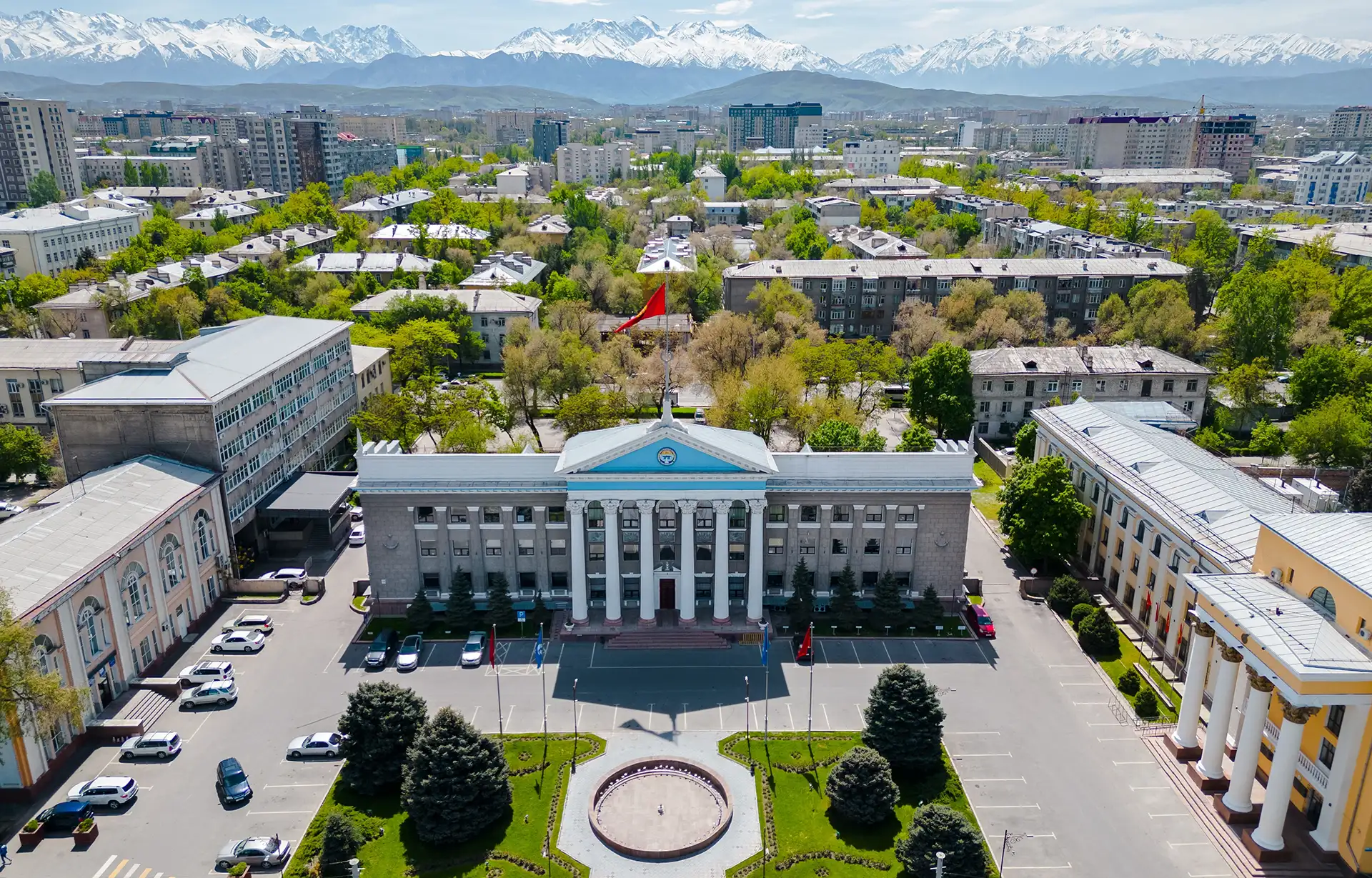
US Employment-Based Immigrant Visa
Table of contents
- Table of contents
- Overview
- Employment-Based Immigrant Visa Eligibility
- Employment-Based Immigrant Visa Purposes (if applicable)
- Employment-Based Immigrant Visa Validity
- Employment-Based Immigrant Visa Categories
- Required Documents for US Employment-Based Immigrant Visa (in general)
- FAQ about US Student Visas
Overview
US Employment-Based Immigrant visas are a popular visa category for skilled, qualified, and experienced workers, as well as professionals and investors. The EB Visa category offers a pathway to US immigration to foreigners who possess a specific expertise or a high level of academic achievement—or those who have the relevant career background. EB Visas allow holders to pursue permanent residency in the United States, as well as recoup financial rewards stemming from their original investment. There are five types of EB Visas; an overview of each (and of the general category) is provided below.
Employment-Based Immigrant Visa Eligibility
Each of the five EB Visas has a specific set of eligibility requirements. In general, those eligible for EB visas may include persons with “exceptional ability” in certain fields, those with graduate degrees or PhDs, skilled (and unskilled) workers, and certain special immigrants. To be eligible for investment-based EB visas (EB-5 or Immigrant Investor visa), an applicant must invest a minimum amount of money in a US business.
Employment-Based Immigrant Visa Purposes (if applicable)
Different EB Visas have different stated purposes. In general, EB Visas are available for the following purposes:
- Coming to the United States for the purpose of investing a minimum amount of money in a US business
- Coming to the United States as a “Special Immigrant”
- Being employed in the country as a Skilled Worker
- Being employed in the country as an Unskilled Worker
- Being employed in the country as a so-called “Professional”
- Working in the country at the executive/managerial level
- Working in the country at a job which reflects the applicant’s “extraordinary abilities”
- Teaching in the United States at an advanced level (university/college)
Employment-Based Immigrant Visa Validity
US Employment-Based Immigrant visas are valid for permanent residency in America. EB Visa holders who successfully immigrate to the United States and abide by their specific visa’s terms and conditions will ultimately receive a Green Card, and therefore permanent residency in the country. All successful US visa applicants must abide by the validity period granted on their visa.
Employment-Based Immigrant Visa Categories
- EB 1—Employment First Preference—Priority Worker and Persons of Extraordinary Ability
- Persons with extraordinary ability in the areas of academia, sciences, arts, athletics, or business
- Exceptional researchers and professors with minimum three years of experience and international recognition
- Multinational executives or managers who have worked recently for the U.S. employer's foreign subsidiary or branch
- EB 2—Employment Second Preference—Professionals Holding Advanced Degrees and Persons of Exceptional Ability
- Professionals holding an advanced degree with a minimum of five years working in the relevant field
- Persons with ability defined as exceptional in the relevant field (arts, business, sciences)
- EB 3—Employment Third Preference—Skilled Workers, Professionals, and Unskilled Workers
- EB 4—Employment Fourth Preference: Certain Special Immigrants
- Ministers of Religion and certain religious workers
- Certain current/former employees of the U.S. government in foreign countries, including those employed in the Panama Canal/Zone, in Iraq and Afghanistan
- Certain graduates of foreign medical institutions
- Certain retired international organization employees—including those in NATO, US military— and their eligible family members
- EB 5—Employment Fifth Preference: Immigrant Investor
Required Documents for US Employment-Based Immigrant Visa (in general)
Different types of EB Visas require the submission of different government forms. All applicants, however, are required to submit the following—regardless of visa type:
DS-260 Form
This form online form is the basic Immigrant Visa and Alien Registration application
Passport
Government issued, enabling you to travel legitimately and internationally, which also has a validity period of six months post your date of US entry
Visa fees
Confirmation of payment of all fees related to your specific EB Visa type
Applicant Photo
Color images (2) that are sized to a passport and recently taken. Will likely need to be submitted at the visa interview appointment, rather than uploaded electronically.
Additional materials
- Medical forms (showing proof of inoculations and a recent, legitimate physical from an approved doctor
- Civil materials (various; will likely include certificates of birth and marriage)
- Financial records (showing your net worth/evidence of your ability to afford the costs of immigrating/living in the US)
- DS-261 (required of some applicants)
How to apply for US Employment-Based Immigrant Visa
The steps to apply for an EB visa may vary based on the specific type of EB visa you are seeking. In general, all EB visa applicant's should follow these general directions:
- File a petition/pursue labor certification
- Depending on which type of EB Visa you are pursuing, you will begin your application process either by:
- Filing one of the below petitions:
- Petition for Alien Worker Form I-140 (for EB 1, EB 2, and EB 3 Visa applicant's)
- Petition for Amerasian, Widow(er), or Special immigrant, Form I-360 (for EB 4 Visa applicants)
- Immigrant Petition by Alien Investor, Form I-526 (for EB 5 Visa applicants)
- Pursuing a Labor Certification via the U.S. Labor Department (required for EB 2 and EB 3 applicants)
- Filing one of the below petitions:
- Depending on which type of EB Visa you are pursuing, you will begin your application process either by:
- Receive proof of petition/labor certification acceptance
- Whether you proceed with the subsequent EB Visa application steps will depend on whether your petition/labor certification was accepted by the relevant entity. After your petition/certification has been accepted, you will receive instructions on how to move forward with the rest of your application. Most applicants move on to Step 3…
- Submit other online application materials
- These will vary depending on which EB Visa you are applying for. All applicants, however, will submit their DS-260 form, scans of their passport, and other civil documents, etc.
- Complete payment of relevant visa fees
- Payments will include the processing fee, immigrant petition forms and filing fees, etc.
- Obtain a medical exam
- You must pass a physical in order to move on to your visa appointment
- In order to receive a clean bill of health, the applicant must receive all of the required vaccines—as well as procure evidence being vaccinated
- Please note that only physicals performed by doctors selected by your application destination (US Embassy/Consulate you are applying through) will be considered legitimate
- Sit for your interview
- At the interview (to be held at your local US Embassy/Consulate), you will do the following:
- Be interviewed
- Submit your fingerprints and photos (biometric information)
- Submit physical copies of any required documents which you did not already submit online (or physical copies of online docs/confirmation pages, etc.)
- At the interview (to be held at your local US Embassy/Consulate), you will do the following:
- Obtain your visa
- Successful applicants who pass the interview stage of the application process are typically presented with a visa (or the date when they will ultimately receive one)
- Submit USCIS Immigrant fee
- Most EB Visa applicants are advised to pay the UCIS Immigrant fee of $220 before they seek entry to America
- Travel to the United States
- Having successfully completed the above steps, you will presumably be granted entry to the United States at the border (provided all your documents are in your possession/in order)
- Obtain your Green Card
- Having paid the USCIS fee, gained lawful entry to the country, an EB Visa holder should at this stage be presented with a Green Card (Form I-551 or a Permanent Resident Card). Cards are typically sent in the mail
Employment-Based Immigrant Visa Interview
Most would-be immigrants to the United States are required to schedule a visa appointment (at their application destination), where they will face questions about their upcoming trip to the United States. In addition to confirming biographical details about yourself (name, age, birthplace) you will also likely face questions about the nature of your travel to the US, with the ultimate goal of determining that you will be the following:
- Aware of your visa’s terms and conditions and mindful of not violating them
- An upstanding US resident (not commit crimes, threaten national security, etc.)
- Able to financially afford your life in the United States, post immigration
When to apply for Employment-Based Immigrant Visa (if applicable)
It can take years to ultimately be approved for an immigrant visa to the United States. There are limitations to the number of visas that can be processed per year (see: numerical limitations). The processing time for EB visas also depends on where you are attending your visa interview appointment (i.e. the specific US Embassy/Consulate you are applying through). Generally speaking, applicants are typically advised to apply months if not years in advance of when they need to be in the country. This is because it can take months to get a visa interview (one of the main visa requirements), and even years for a submitted application to be processed. Many visas are granted at the end of a visa interview, others face days, weeks, or even longer periods of additional review. Contact your Embassy/Consulate for a better estimation of when to apply for your visa.
Where to apply for Employment-Based Immigrant Visa
You can fulfill many of the EB application requirements online. However, essential parts of the application process must be accomplished in-person. In the event that you are applying from outside the United States, you will apply for your EB Visa at the US Embassy or Consulate in your country (i.e. the country in which you are currently living).
Numerical Limitations of Employment-Based Immigrant Visas
As noted above, there are limitations to the number of EB visas to the US that can be processed. Once this limit has been reached, the processing of pending applications will be paused until the following year. Your visa application will not start being processed until each of the applications preceding it (i.e. those applications submitted before yours, which are waiting in the queue) have been processed. As noted, this can mean months or even year-long waits for visa processing.
FAQ about US Student Visas
There are five main types of Employment Based Immigration Visas. In short, they are:
- EB 1 Employment First Preference
- EB 2 Employment Second Preference
- EB 3 Employment Third Preference
- EB 4 Employment Fourth Preference
- EB 5 Employment Fifth Preference
All of the EB visas offer a pathway to permanent settlement in the US through a Green Card. Successful EB Visa applicants who enter the US on their visa, and pay their visa fees are typically granted a Green Card.
Renewing an EB visa is typically not necessary, given that EB visa holders are traditionally granted Green Cards post-US settlement. In theory, possessing a Permanent Residency card (Green Card) negates the need to renew a visa.
Different EB Visas have different costs relating to the specific forms that must be submitted (there is a cost associated with submitting certain immigration forms), minimum investment requirements for investment visas, and filing fees.
Yes. Eligible dependents for EB Visa holders include wives and husbands (of the main EB visa holder) and their children (provided they are unmarried and not yet 21 years old). Anyone seeking to come to the US as a dependent must file an individual application (and pay separate visa fees).


